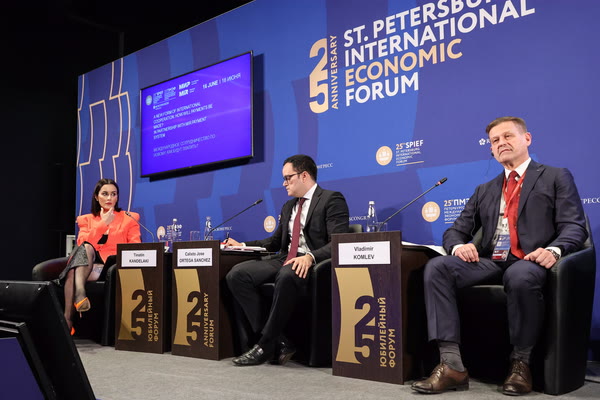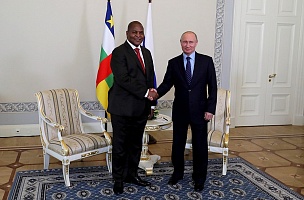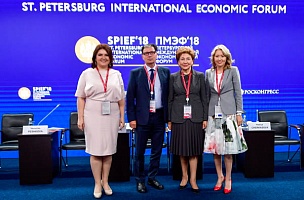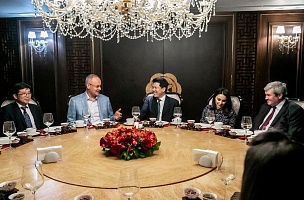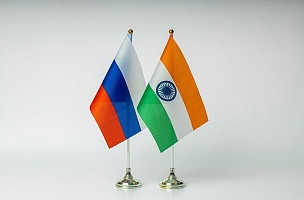Key findings
The crisis is a new window of opportunity, including for national payment systems
"Sanctions on citizens who want to travel and spend their money abroad are helping the economies of other countries, which are now in demand instead. I think that, sooner or later, the sanctions will ease and the Russian people's ability to travel will be restored as countries begin to need more Russian tourists. Therefore, the ability to pay everywhere with a Mir card will be in demand. I think that this is our opportunity. We need to be a little more understanding and pragmatic about the idea of Mir in the whole world. I really believe in it and believe that today's crisis creates a window of opportunity for us”, said Vladimir Komlev, Chairman of the Board and CEO of NSPK.
"Venezuela was practically under blockade. Various sanctions were imposed on Venezuela, especially in 2018. Our response was that we applied national policies and started to develop our own payment systems that were developed in our country, by us, the Venezuelans. Now we can ensure that all our citizens can make payments every day”, said Calixto José Ortega Sánchez, president of the Central Bank of the Bolivarian Republic of Venezuela.
International cooperation should be mutually beneficial to countries
"Every day presents us with new challenges that force us to develop new ways of cooperating internationally. We are entering into new alliances, and, in particular, we are expanding our cooperation with our Chinese partners. We are currently working on making Mir payment system cards work in our country. We hope that in the very next days or weeks we will make a final push and the Mir payment system will be fully adopted by our country by the end of the year. That is why the number of Russian tourists coming to our country has been growing lately, because there are fewer and fewer difficulties to pay. We keep working", said Alberto Quiñones Betancourt, Director General for system technologies and development at the Central Bank of the Republic of Cuba.
"We have already developed a domestic payment system for our citizens. The challenge is to create a system that works on all the platforms that operate in our country. We have to go to the global electronic space, and ensure that all the transactions that our citizens make are paid. In this sense, we have already taken several initiatives, and we are far advanced in talks with our partners from Russia, Turkey, and China”, said Calixto José Ortega Sánchez, president of the Central Bank of the Bolivarian Republic of Venezuela.
"The solution in the future is cooperation. Honest cooperation. If one side wants to maximize benefits, it will not work, it will not be sustainable. Therefore, both sides should benefit at the same time. Both sides. So this form of international cooperation has to work together”, said Emrah Şener, Deputy Governor of the Central Bank of the Republic of Turkey.
"Bilateral treaties are very important, but at the same time, I don't think this is the natural and correct solution. This is because the proper solution would be a new world order, in which new technologies and new world standards are included. So that countries like us can use it”, said Tarek Raouf, CEO of the Egyptian Banking Company (EBC).
PROBLEMS
Terms of the economic embargo
"Our country has been living for more than 60 years under an economic blockade that was imposed by the United States. In recent years, we have multiplied our efforts to modernize all sectors of our economy, following the guidance of our leaders and our government. We have made great efforts to develop our capacity so that tourists visiting our country can take advantage of international payment systems. The experience we have accumulated compares with that of other countries”, said Alberto Quiñones Betancourt, Director General for system technologies and development at the Central Bank of the Republic of Cuba.
"It would seem that the difficulties that have stood in the way of the foreign expansion of the Mir payment system are quite serious. Certainly, we have made serious steps and had some achievements in the last eight years. But today, we really want to look to the future, and we need to understand how and where our chances are. For us, this is probably the key issue in ensuring that Russians can continue to travel successfully and have no problems with paying abroad”, said Vladimir Komlev, Chairman of the Board and CEO of NSPK.
Acceptable conversion without dependence on third countries
"It's good to have an instant pay-by-phone system. But at the same time, we need to make the phone payment systems work with each other. In Turkey, we have the Turkish lira, for example. So, when we pay each other in rubles, it will have an impact on the conversion. That is, the transition from one currency to another currency. This is a critical system", said Emrah Şener, Deputy Governor of the Central Bank of the Republic of Turkey.
"We are really struggling to find these payment channels that would be acceptable, that are understandable, and are independent of third countries. […] We are facing this problem now, it is not easy and it goes far beyond retail payments and payment systems. Indeed, I want to have some kind of channel with each country, to enable a simple conversion. Rubles to dirhams, rubles to liras, and so on. And this is where the problems really begin”, said Vladimir Komlev, Chairman of the Board and CEO of NSPK.
SOLUTIONS
Open payment system
"All Mir cards, even those that work in Turkey, are a closed system. The system is a closed-loop. You can include someone in this system or you can exclude them from it. Not in the near future, but moving forward, in the distant future, the system will morph into something else. We will need a completely open system so that no player can say, 'I can include you and I can exclude you at will’”, said Emrah Şener, Deputy Governor of the Central Bank of the Republic of Turkey.
"We believe that the future for the user in terms of online payment infrastructure is that we will be able to enable the user to pay online without being linked to any cards. There are various ideas being promoted around the world about how a user can have all their bank accounts displayed in some single app and ensure a direct debit of that account”, said Alexander Aivazov, senior vice president of investment and business development at VK.
Digital money
"In the future, our payment systems, which we are currently trying to build up, should be cheap and inclusive. I have said that I like cash, but in September, in Turkey, we will be conducting the first trials of digital money. […] It is a digital version of cash. In the digital world, you don't need to have a bank account, you don't need to have access to the Internet, but you can spend your money through your mobile phone", said Emrah Şener, Deputy Governor of the Central Bank of the Republic of Turkey.
"For us, the future is naturally associated with digital payments and digital currencies. Last October we issued a new financial policy order and we called it the digital bolivar, our currency. It is a digital version of our national currency. […] I am sure that in the future, as my Turkish colleague said, naturally, digital coins and digital money will be used more and more. Of course, this opens the possibility for us to cooperate with other countries. We have to think about how to make such payments compatible”, said Calixto José Ortega Sánchez, president of the Central Bank of the Bolivarian Republic of Venezuela.
"We have been talking about digital currency and digital money for a long time now. We are trying to develop with everyone in our country. We are researching the market and trying to find the cheapest solutions. First of all, it must be cheap for our consumers and the citizens of the country”, said Alberto Quiñones Betancourt, Director General for system technologies and development at the Central Bank of the Republic of Cuba.
Read more in the Roscongress Information and Analytical System roscongress.org


